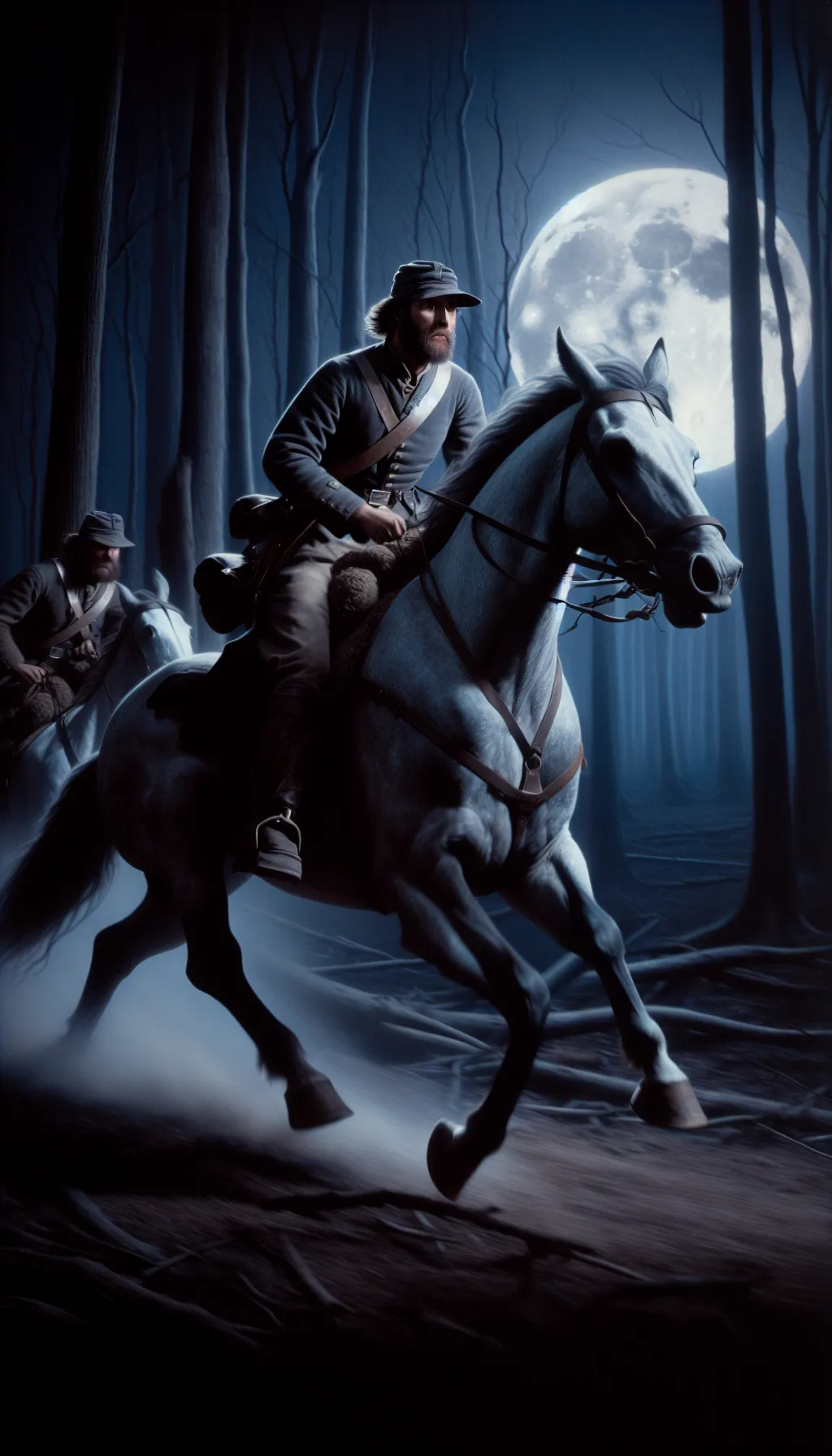Virginia – The Midnight Ride of Jack Jouett – June 3, 1781
TLDR;
- Event: On June 3, 1781, Jack Jouett embarked on a 40-mile (64 km) midnight ride to warn Virginia legislators, including Thomas Jefferson, of an impending British attack during the American Revolution.
- Challenge: Jouett navigated treacherous backcountry roads to avoid British patrols, sustaining injuries from low-hanging branches.
- Outcome: His timely warning allowed Jefferson and most legislators to escape, though seven were captured, preserving the Virginia government’s continuity.
- Legacy: Jouett’s ride, though less celebrated than Paul Revere’s, was crucial in sustaining the American Revolution’s momentum in Virginia.
–
Story
The moon hung high over the Virginia countryside, casting a silvery glow on the winding paths and dense forests. It was a night like any other, until the sound of hooves pounding against the earth shattered the stillness. Jack Jouett, a young militia lieutenant, was on a desperate mission that would change the course of history.

In the early summer of 1781, the American Revolution was in full swing. The British, under the command of Lieutenant Colonel John Graves Simcoe and Colonel Banastre Tarleton’s dragoons, were determined to crush the rebellion by capturing key figures of the Virginia legislature, including former Governor Thomas Jefferson. The British force was swift and merciless, and they were closing in fast.
Jouett, who had been resting at the Cuckoo Tavern, overheard the British plans and knew he had to act. Without hesitation, he mounted his horse and embarked on a grueling 40-mile ride through the night, navigating backcountry roads and less-traveled paths to avoid British patrols. His face was reportedly scarred from low-hanging branches as he made his way. His mission was clear: warn the legislators in Charlottesville and then Jefferson at Monticello before it was too late.
As dawn broke, Jouett arrived at Monticello, Jefferson’s home, breathless and exhausted but triumphant. His warning allowed Jefferson and most of the other legislators to flee, narrowly escaping capture, though seven legislators were still captured by the British. Jouett’s ride, though less famous than Paul Revere’s, was no less heroic. It was a testament to courage and determination in the face of overwhelming odds.
Thanks to Jouett’s bravery, the Virginia government survived to fight another day, and the American Revolution continued its march toward victory.
–
| Would a different decision by Jack Jouett have changed the outcome of the American Revolution? |